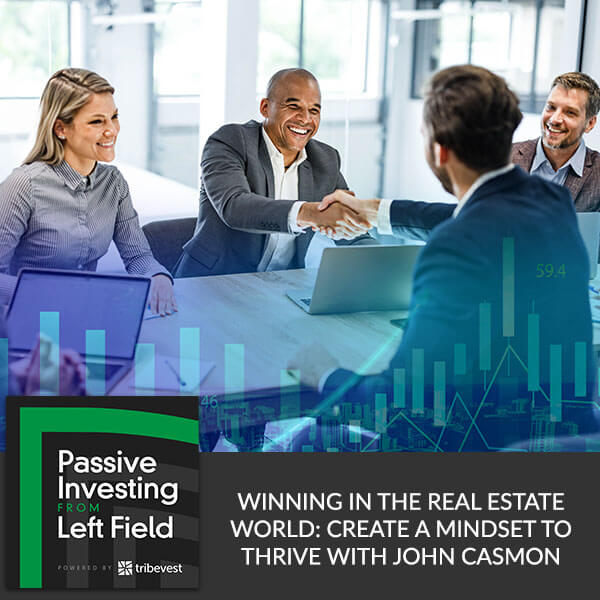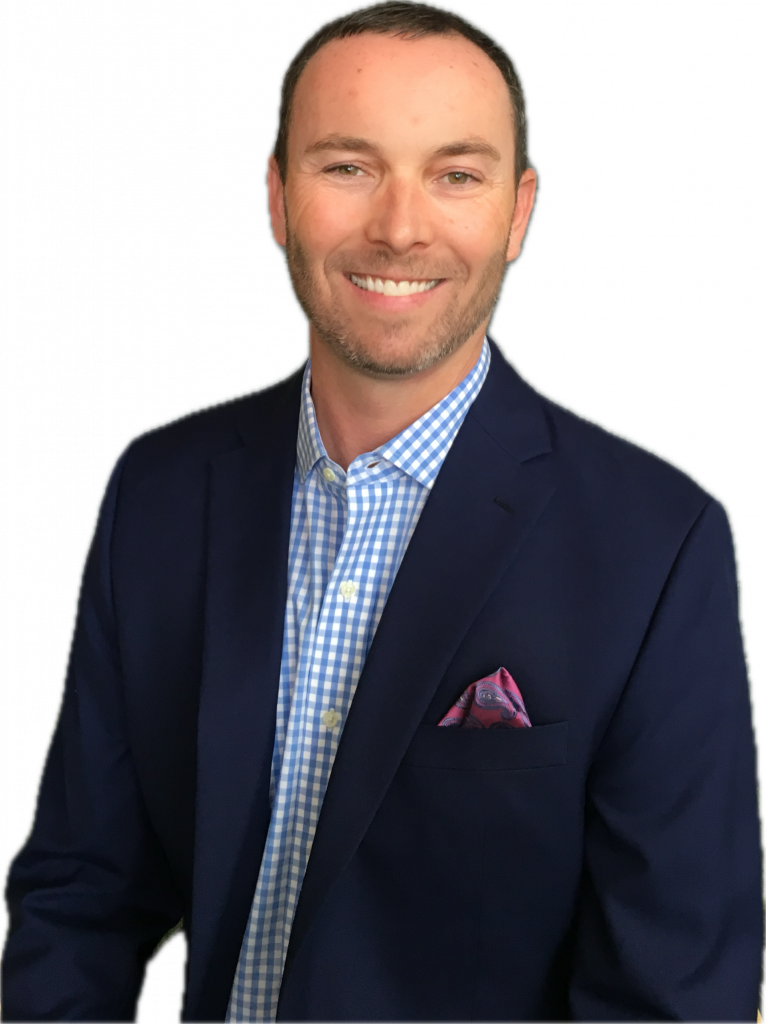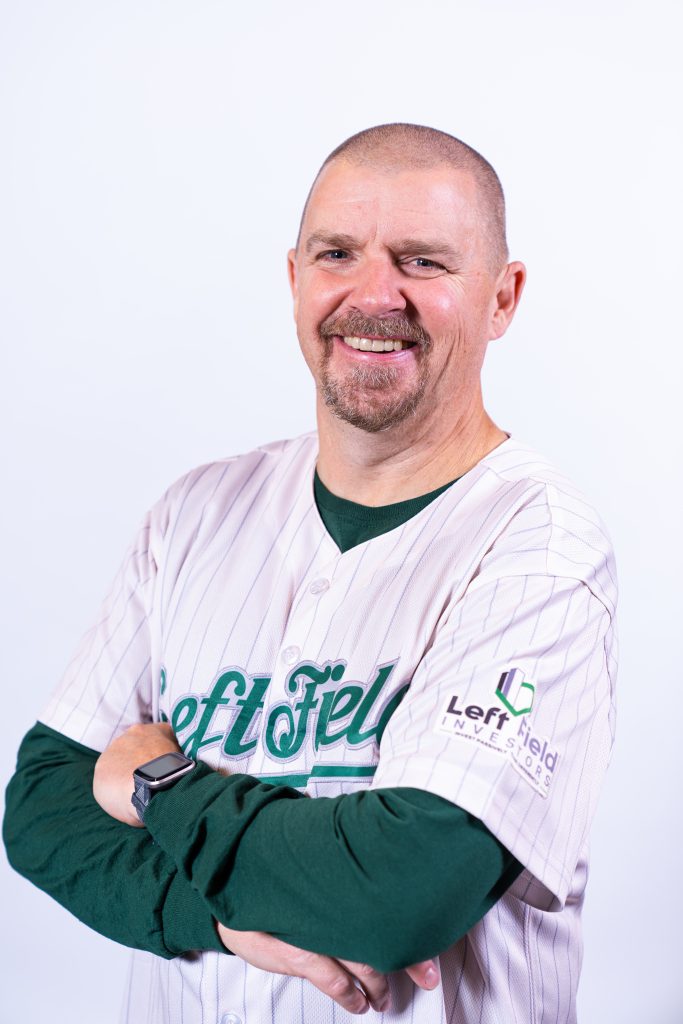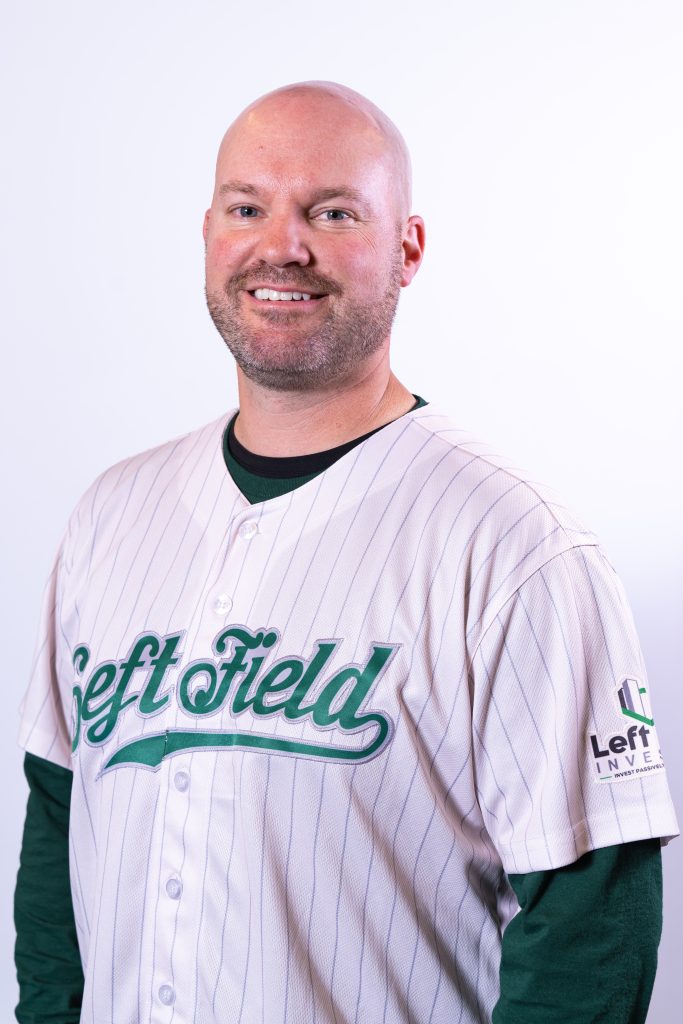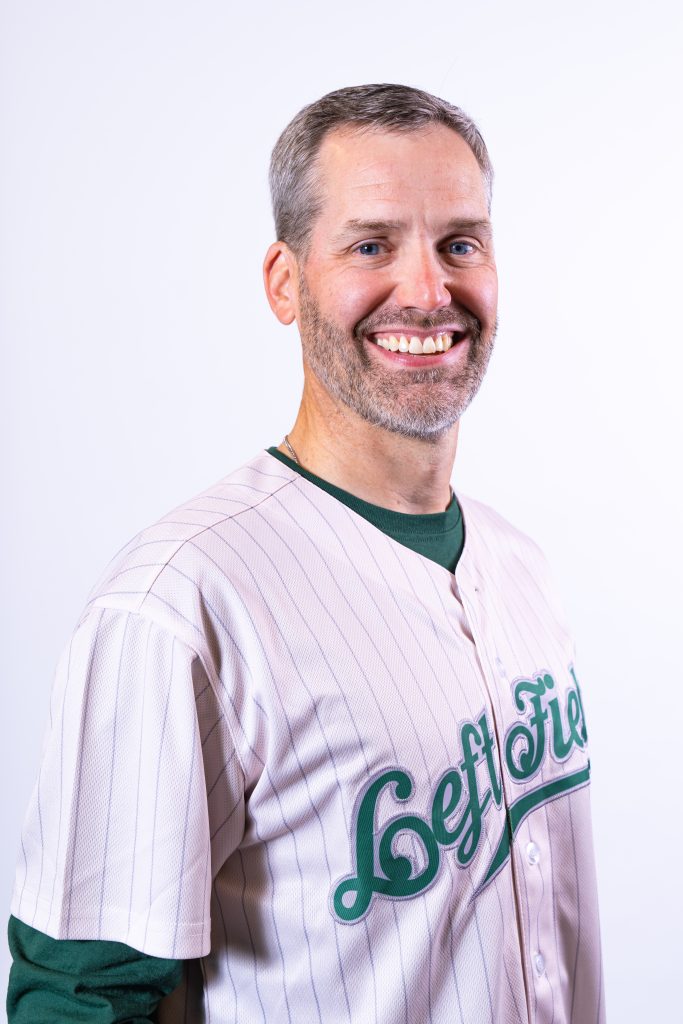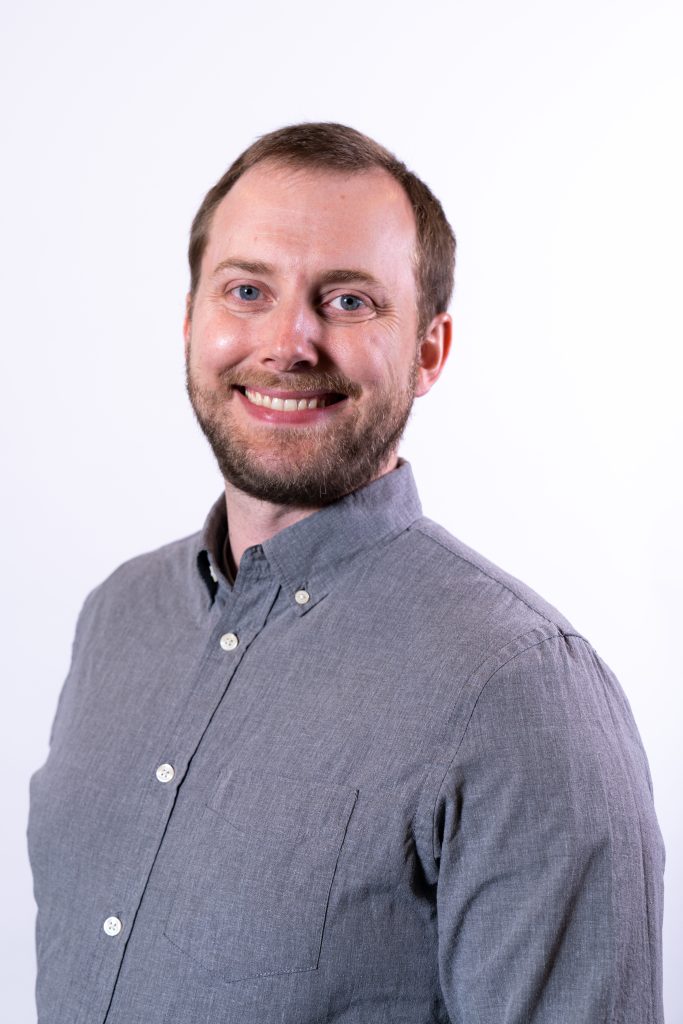
Whether you are a passive investor who wants to learn how to maximize your wealth or are you an operator who wants to communicate effectively with investors – you need to have a mindset for success. Today, John Casmon discusses the mindset, strategies, and actions that can help you win in the world of real estate! John is a real estate entrepreneur, host of the Multifamily Insights podcast, and co-founder of Casmon Capital Groups. Whether you’re a passive investor or operator, you are certain to gain valuable insights in this episode!
—
Listen to the podcast here
Winning In The Real Estate World: Create a Mindset to Thrive With John Casmon
I’m pleased to have John Casmon with us. He’s a real estate entrepreneur who’s partnered with busy professionals to invest in over $100 million worth of apartments. He also consults active multifamily investors to help them start or grow their businesses. He’s the host of the MultiFamily Insights Podcast and the Co-creator of the MidWest Real Estate Networking Summit. That all sounds awesome. John, welcome to the show.
Jim, thank you for having me. I’m excited to be here. It’s great to talk to all of your left field investors.
The first question I always ask is if you could tell us your story and journey. How did you get into real estate? How did you become an operator? All of the good stuff that got you to where you are.
The short version is this. I was in Corporate America. I worked in marketing and advertising for fifteen years. Early in my career, I worked at General Motors. It happened to coincide with the time that we went into bankruptcy. I was there during the layoffs. I watched a lot of my peers, unfortunately, lose their roles. The big thing for me was recognizing how little control I had over my career. No matter how good I was, I watched senior executives get shipped from San Francisco to Detroit to Shanghai all in a matter of two years.
I started asking myself a lot of questions like, “Is that what you want to do for the next 30 years?” The short answer was no. I started to think about options. I had read Rich Dad Poor Dad like a lot of your readers. It came rushing back to me as real estate. “We need to invest in real estate.” The challenge was I was still in Detroit and it was 2009 so I read everything I could. I educated myself. Eventually, I made the decision to move to Chicago and the agency side of marketing. I bought a two-unit. I started with the house hack, lived in one unit and rented out the other unit. That went well for us.
It went from an idea that I believed in but still an idea of adding some proof of concept. The next thing is we bought a three-unit building and that was my first true rental property since I wasn’t living in it. That went well. I was like, “Let’s see if we can take this to commercial.” I bought an eight-unit building and managed a property management company. That went fairly well. Not quite as well as the other two because I learned a lot about managing other managers and all that stuff but it was enough for me to say, “How do I scale?”
Ultimately, I ended up hiring a coach and a mentor. I started focusing more on larger apartment buildings. We’ve partnered with other investors to invest in over $100 million worth of apartments but it wasn’t all easy. Between that eight unit and the next large commercial deal we did, there was a lot of growing pain, a lot of lessons learned and a lot of things that put us in a better position in the long run. Some things I would do differently, particularly since I was a busy professional at that time with two small children and we made a lot of mistakes in what we were doing.
I have a few questions to dig into there because when I was in Corporate America and dissatisfied with my job, seeing people get laid off or unhappy, I would maybe try a different industry, change jobs within the industry or even look to change offices within my company. How did you figure out, “Not only am I going to change industries but I’m going to try to get out of the corporate world altogether?” How did you find real estate? You read the purple book. I read it. It has a huge impact on some people. It didn’t hit me until later. How did you figure out, “This is what I want to do and this is an idea of real estate where I’m headed?”
First and foremost, you have to be honest with yourself, who you are and what you want. I’ve always been entrepreneurial. I’ve always had big visions and goals. Having that mindset was important. What happened for me is I had time as crazy as it sounds but that bankruptcy to take people back wasn’t a quick thing. It was April 2008 when things started to become clear that there was an issue. That lasted for a full year. Every day for a year, I went to work with some anxiety about what was going on and what was happening with my peers.
[bctt tweet=”You have to be honest with yourself about who you are and what you want.” via=”no”]
There were multiple rounds of layoffs once we had the presidential election and Obama got elected. They bought Kazar. “What are they going to do?” We went through a lot of analysis and paperwork. They wanted to shut down everything except for two of our brands. We had to go through all of that stuff. This wasn’t a quick decision. In that process, you’re right. I did all those things.
I looked at changing jobs and switching industries. That’s when I realized this wasn’t just related to the automotive industry and General Motors but this was a national economic crisis that was going on. I did get one job that I was going to take but we got caught up on titles. They wanted to give me a specific title that was more junior than I thought I should have and we couldn’t come to terms with it. I ended up staying there. That also led me to, “Is this what you want to fight over the next 20 or 30 years? Titles and salaries, going from here to there and all that?” I’m like, “This isn’t it. We got to figure something else.”
For me, it wasn’t a quick decision like, “I’m quitting and going into real estate.” It was, “I have limited opportunities in this current environment.” In Detroit, at that time, everything was driven by the automotive industry if you wanted to be an advertiser in marketing. That’s where the money was. For me, going to Chicago allowed me to expand in different industries, a more diverse client base and more packaged goods, financial services and things like that while also being a better real estate market for me. The first step was to get into an environment where you can put your game plan into motion. If it works, you can continue to grow it and do those things. The first step was getting into Chicago, which is what we did and that made it a little bit easier.
You got into real estate, bought a few smaller units, bought the eight-unit and then think, “I want to keep doing this and grow.” That’s when you think, “I need to find a coach or a mentor.” A lot of people are like that. Even passive investors often ask, “Where can I get a coach or a mentor?” Can you talk to us about how did you find a mentor or a coach? How do you vet them to make sure they’re right for you? I assume you have to write a pretty big check to have them do that for you. How do you get to the point where you’re comfortable like, “This is the person. I found them and I want to move forward with them?”
It’s probably not the best advice for someone else to do but I’ll tell you what I did. After the eight-unit, the pain point I was trying to solve is my wife and I would save our money to buy these real estate deals. We save, find a property and buy a property. When we did the eight-unit, I remember that our down payment was $130,000. I don’t think either of us was making $130,000 individually at that time, salary-wise. It’s the prospect of saving another six figures to go out and buy a property living below means.
We were already house-hacking this property still. We had our second child so our child calls were shooting up through the roof. I was dejected. I remember feeling like I should be excited. We added to this portfolio. We got a commercial deal. It’s all the stuff I wanted but then I thought, “I got to sit here and try to save another six figures again to buy another property. This is going to take forever.”
At that time, a good friend of mine had gone from 3 units to 9 units, from 9 units to 90 units in her portfolio. I remember saying, “How did you do that?” I took her to breakfast. I was fully expecting her to tell me how her great uncle left her $10 million or something. She said she partnered with other investors. This is the first real person that I’ve met who raised money and partnered with other people. That idea was seeded. It was planted in my head like, “This is possible.”
You take my pain point of, “I don’t want to have to save another six figures to go buy a property but you could do it because she did.” I met my mentor the next month and I wasn’t seeking a mentor. I didn’t go through a list and evaluate people. I didn’t have the criteria for a mentor. I was looking at a specific market and I was on BiggerPockets. I said, “I’m looking at Cincinnati. I want to connect with some people.” They said, “You should talk to this guy.”
They tagged him in a post. I reached out to him. He said, “I’d be happy to grab lunch with you.” I grabbed lunch when I came into town and during our conversation, he mentioned that he got started with a mentor and now he mentors people. I said, “Maybe that’s a good way to get going.” That’s what I did. He told me what the cost was. I thought it over for about 1 day or 2 with my wife. I thought it was the best plan.
For me, the pain was real. If anyone’s looking for mentorship, the first thing you have to understand is mentors are not magicians. They’re not going to solve every problem. If you’re not crystal clear on what you’re trying to get out of a mentorship, you may leave that mentorship with disappointment. For me, it was very clear. I had some experience in real estate and investing in multifamily. I wanted to get better at that but more importantly, I had never raised $1 from anyone for anything.
[bctt tweet=”Mentors are not magicians. They’re not going to solve every problem. If you’re not crystal clear on what you’re trying to get out of a mentorship, you may leave that mentorship with disappointment.” via=”no”]
I didn’t know how to structure the deal. I was nervous about talking to investors. I didn’t know what to say. Would anybody want to invest with me? I had all of these concerns and fears. Having this mentor who had been down that road and been through that process could help at least answer a good chunk of those questions for me. They weren’t going to solve it all for me but they can at least help me navigate and say, “Here’s how you structure deals. Here are some options to think about why you’re structuring a deal. Here’s how I talk to my investors. Here’s what I share with them. Here’s what I put into a deal package.” All that made it a little bit easier for me.
The thing that I started with is clarity on what you want a mentor to help you with and then you can find people who can do it. I’m not a fan of analyzing, putting everybody up on a spreadsheet and doing a chart. I listen. Do you connect with somebody? I don’t want to say gut but do you like them? Do you know them? Do you trust them? Do they have experience doing what it is that you want them to do? Have they helped other people achieve their goals and financial goals that they’re looking for?
If so and there’s a clear path for them to help you, you enjoy working with them and you feel like they’re the people who will help you get to the next level, then move forward with it. I don’t think you need to spend ten weeks analyzing everybody who’s got a program under the moon. Find the program and the person that’s right for you and move forward.
That sounds so logical and it makes sense but sometimes it’s hard to get there because you go somewhere and meet some of these gurus or whoever. They sound like, “I got to jump on it.” Here are a couple of things. One is the mentor is not going to solve all your problems. They’re not going to do it for you. Also when you’re choosing someone, it has to be someone you know and you like working with.
You have to have a relationship where you’re comfortable with them because if you’re uncomfortable with them or you’re not sure you like them and you’re trying to get something from them, you’re not going to be happy working with them. That’s good advice and it moves to the next question I wanted to ask you. You started partnering with other operators on deals. Let’s talk about that process. How do you then and now screen operators to decide if you want to work with them or not?
We have two verticals of our business. In one vertical, we are lead operators. We find the deals and manage the deals. We have strategic partners sometimes who help us with those things. All in all, we’re on the lead operator side of the table managing that. Those are deals in a two-hour radius of where we live here in Cincinnati so Columbus, Indianapolis, Louisville and Kentucky, those markets are where we’re playing.
With that said, we also partner with other operators in the Southeast region so Texas, Georgia, Carolinas and Florida. We’ll partner with other operators who have boots on the ground in those markets. We didn’t start with that as the goal. I came into this with you eat what you kill. We started by raising our own money. Whatever money we had, that’s what we had for real estate. It then went to, “Maybe we can invite other people to join us.” The challenge we faced was we couldn’t find a deal that penciled in when we had to give 50%, 60% or 70% of the profits to our partners.
That made it harder for us because if you do 50/50, with the deals we were doing, you got to scrutinize the numbers. If I’m going to do this deal but I’m only going to make $100,000 a month, is it worth it? You have to dig deeper to say, “Does this deal make sense for my real goals?” The truth is they didn’t. Most of the deals we were looking at, maybe if we factor in more appreciation, would have but the way we’re analyzing deals, they didn’t.
What happened for us is we had been talking to investors. These are not investors at that time. They’re friends and family that we know. They were excited about this opportunity, which was great but with that excitement came expectations. After about nine months, they’re reaching out, “You are telling about all these great real estate deals. When are you going to bring one to me?” I was like, “I’m looking and trying. I will say that I don’t know if it’s desperation but I felt like we were having a hard time.”
When you’re faced with those pressures, you have a couple of options. 1) You quickly find something and pray it works, which is a terrible idea. 2) You open up your approach and change your approach. One of the things we changed is we said, “We’re not the only people looking at deals.” Part of our challenge was the market. I was in Chicago and I wanted to invest in the Northside of Chicago. There simply are not a lot of large apartment buildings in the Northside of Chicago so we’re focusing more like twenty units or so. It was hard to find those deals. We started to partner with other people.
What happened is I launched my podcast, which is MultiFamily Insights. Back then it was called Target Market Insights. The second guest is my guy Andrew Campbell. I had him on the show and we’re chatting. Andrew and I met at a conference. We had a great relationship and dinner. My wife met him first and was like, “I like this guy. We’re going to do dinner with him.” I’m like, What?” We got to know each other well.
Six months later when I launched my show, I invited him to be one of the early guests. He was guest number two. When we recorded that episode, we were chatting. I’m like, “I’m looking for deals and having a hard time.” He’s like, “We’re getting close on a couple of deals.” As we were talking, I said, “If you’re getting close to some deals, keep me in mind. I’d love to partner with you. Maybe there’s something we can do together. I have these investors and I’m trying to find some deals to help them. I’m having a hard time but if you’ve got stuff, I like and trust you. I know how you underwrite. We’ve had these conversations. I’ve seen your work. Maybe we can do some stuff together.”
That ultimately led us to partner with other operators and grow. To answer your question directly, when I’m looking at other operators, first of all, I’m going off of my relationship. How well do I know them? I want to make sure I’ve known them for a while. At least six months is my minimum threshold. Probably more like a year now, to be honest. I want to make sure I know them. What that means is I’ve had multiple conversations with them.
Touch base, not even about real estate or deal-specific but like, “What’s going on in your life? What are you seeing out in the marketplace? How’s your family?” I want to get a feel for this individual as a person like, “Who are you as a human being? From there, I want to watch how you play. Are you active on social media? Are you sending out deals?” It depends on their role and what they’re doing in their business.
I’m watching from afar. Am I seeing this person show up every day or does this person show up every once in a while? Are they consistent? Is this somebody reliable? Is this someone who is accessible? If I shoot a text message, a phone call or an email, do I get a response? Those are the little nuance things that I’m checking for.

They typically have a deal and I’ll typically like to see a deal first. I look at it, maybe do some light underwriting and see what questions they have and what their logic is around their business plan. Besides the first deal I did, I don’t think I’ve ever partnered with somebody on their first deal without a deep relationship.
Once I feel good about that and I see how this person’s performing and how they’re operating, then we may move forward, particularly if it’s in a market we like. I talked about Carolina, Georgia, Florida and Texas. These are markets we know are on fire. It has great population growth and overall demographics but for me to try to go and compete in those markets by myself seems crazy.
I’m not going to fly out to Florida or Orlando and be able to develop better broker relationships to find that smoking hot deal against the teams who live there versus the more well-capitalized people. They’ve got deeper resources, pockets and relationships. It doesn’t make sense for me to try to do that. I can do that more locally or regionally in my yard. For me to shoot out to Florida or Texas and try to do that is not realistic. We’d rather partner with those groups who are in those markets, identify maybe one group in each market that we like and then focus on our backyard.
How should a passive investor be looking at the same evaluation? There are a couple of different questions rolled up here. One, how does a passive investor vet a sponsor? I’d love to hear your opinion on that. The other thing is when dealing with an operator that is partnering with 1, 2 or even more other operators, how does the passive investor vet all of them? When do we look at it and say, “That’s too many cooks in the kitchen?” That’s a lot of questions there but can you talk about how to vet sponsors from the passive side? When they have multiple partners, how that should change the evaluation?
I wrote an article on this and I’ll make sure I send that to you but the first thing on vetting a sponsor is you do want to get to know them. You want to understand who they are as an individual. What is their mindset? What is their investment philosophy? Get to know them. Some people love class A beautiful assets and that’s what they focus on. Nothing wrong with that.
I don’t have a criticism of any strategy. I’m just giving you the lens. Some operators like beautiful class A assets that they’re buying at a 3%, 3.5% cap or something like that. Some people like C class value add assets, deep renovations and deep value-add type deals, whereas 50% or 60% vacant, they’re going to come in, pour all their money into it and it’s going to be a huge upside.
You want to understand what’s the strategy, what’s their philosophy and how they operate. What’s your comfort level with that? Are you okay with that? Some people don’t know and they assume because they’re passive, maybe they don’t care but then they realize, “I like trophy assets.” That’s okay. If you want something you want to brag to your friends about and show them like, “I invested in this $20 million beautiful, classy apartment building close to downtown,” there’s nothing wrong with that. It’s fine.
On the flip side, you might find a great deal but you probably don’t want to tell your friends that you’re a part owner of that property. You have to be realistic about that. We focus on more class B value-add deals but you get the point I’m making there. Understand what their philosophy is. Does that align with your investing philosophy? Get to know them as people. Get to know them and their deals. Get to know other folks that they’ve done deals with.
It’s okay to ask for a referral. “Can I talk to some of your other investors?” I would ask about deals they’ve done. One question I tell everyone is, it’s okay to ask somebody about a deal that didn’t work out or even their worst deal because you want to understand who that person is. When I ask that question as either an LP or a potential partner with somebody, what I’m trying to understand is how this person talks and thinks about it.
Stuff happens. Everyone is going to have a deal. At some point in your career, you’re going to have a deal that doesn’t work out or at least doesn’t work out as well as you thought it was going to work out but what happened? They blame somebody nonstop and all these contractors did something. I’ve had a contractor steal from me. It happens. Is it the partner? “My partner messed it up. She did this. He did that.” Do they talk about what they could have done better? Do they at least come to bring it back around to add this partner and do XYZ? “This is a bad thing.”
One thing we’ve learned from that is how to vet our partners better so we make them go through things and this is how we saw that. I want to see that you’ve learned from those mistakes, you’re improving, you are growing as an operator but more importantly that you are accountable. I want to know that you’re an accountable person and you will take responsibility no matter what happens. At the end of the day, that’s what I’m banking on.
I’m banking on an operator to figure it out. To answer your other question, you’re not going to know everybody. Whomever you’re trusting, whether that’s the syndicator, co-GP or the lead operator, you’re putting your trust in that individual to find the right deals, operators and property managers to manage that deal for you. You can’t analyze every single thing and every single person who’s going to be involved. You have to trust the person you are going to dance with that they are doing those things on your behalf.
For me, when I’m a co-GP or partner with somebody, I know my investors are looking at that so I have to scrutinize those operators in the same way. I’m only going to partner with people whom I have confidence in but also who are going to listen to me and my feedback. If I don’t feel like I have a say, I can help ride the ship or give that kind of feedback, then I don’t have value to my investors.
It’s got to be something where we’re partnering with people who are truly partnering. We’re going to help. I’ve got experience. I’m going to tell you, “We tried this. I had this issue at this property. Here’s how we fixed it. You need to look at a different property management company,” or whatever the case may be. You’ve got to trust that person. That’s why that accountability is so key. You got to find people whom you can believe in, who are going to be accountable and who are going to do everything possible to make sure the deal is successful.

What you end up doing as a passive investor is your contact person, the GP that you’re dealing with. You need to ask the question, “Who are the other GPs? Who’s the lead operator? Who else is working on this?” You ask your contact, “What do you think of those people? How did you vet them?” Like you do with other parts of the deal, as a passive investor, I don’t want to start from scratch and underwrite the deal like I’m going to buy it myself. That’s what I’m hiring you for.
It’s similar. You need to underwrite the deal and the other operators. I then put my trust in you that you’re going to figure all that out. That makes sense to me. I want to dig a little bit into deals and the market. What type of deals are you looking for? Has that changed in 2021 with all the uncertainty in the economy, interest rates and inflation? Are you looking for different things now?
I wouldn’t say different things. I would say that some elements have been reemphasized. For instance, we like to find deals that cashflow first. We focus a bit more on cashflow. Particularly since we invest in the Midwest, we’ve never come with the mindset of, “We’re going to buy this at a 3% cap and appreciation is going to take us to the holy grail. We were going to hold on for as long as possible and appreciation is going to take us there.” That’s never been our philosophy. We always try to focus on cashflow and make sure we have a sound business plan to control that as much as we can through value-add planning. We want to exit when it makes sense to exit.
Fundamentally, that hasn’t changed and probably won’t change. What we have seen are more nuances around what debt structure we’re looking for and the whole period. Some of those different factors have certainly come into play. We’re involved in a deal where it is a different approach to a deal, more of an affordable housing deal. I don’t know if we would’ve done that in 2021.
I’ve been interested and have been learning about it. I’m going down this path for some time. The current environment makes it even more attractive because it gives me another exit option. We have multiple exit options. We can do it as traditional syndication and tax credit type of deal. Things like that are the things we’re looking at. Do I have multiple exits?
The main question I’m asking on a deal is, where’s the risk? Can we ride this thing out with cashflow? We’re putting in a conservative estimation so we’re increasing our vacancies and delinquency. We’re assuming that the market simply won’t be as strong as it was. We’re not assuming a 10% growth or anything like that.
If we can do the deal and get good cashflow out of that, can we then control the exit on the back end? Can we sell it when the market is advantageous to us or do we have to sell in 2 years or 3 years? If we have to sell it in 2 years or 3 years, it’s probably not going to be a good deal for us but if it’s something that we can cashflow, hold and sell when it makes sense, that’s going to be attractive.
Can you talk about the hold period? You mentioned that as one of the factors that might have changed. When you’re looking for deals, maybe you can hold longer but what about interest rates or what’s changed that has made you reevaluate the hold period on these assets?
We’ve always looked at it with the five-year hold and what’s important while you go into it with maybe a five-year whole projection. What happens if your projection is off? That’s my thing. If you have to sell in 5 years, then you have to have a great market in 5 years. None of us know what the market’s going to be in five years. For me, it’s the flexibility of the deal to be able to decide whether that 5 is 5 or is it 3, 7 or 8. The key is to make sure you have flexibility and options on that exit. If you have that, then you can protect yourself as long as you have proper reserves, you are well financed and all those things.
Talk about debt because that’s changed. In 2021, there were a ton of people doing bridge debt and maybe they had rate caps, maybe they didn’t. There’s a lot of speculation that some of those operators could be in trouble because as the rate adjusts, their expenses are going to get out of control. How have you handled that? With the deals that you already have underwritten, purchased and are set, how is that going with the debt? Have you had any issues with that? How are you looking at new deals and the debt on those deals?
Debt needs to be a function of the deal and the business plan. I don’t like to speak in broad strokes to say bridge debt is bad. The deal has to make stents with the business plan and the business plan has to be solemn. Debt is one element of risk. We’ve got a couple of different deals in which we do have bridge debt. We have some deals where we have permanent financing and agency financing in place.
With debt deals, you have to be able to create more value. That’s the thing with bridge. You have to have a strong value-add story. Otherwise, you could be in a lot of trouble if you haven’t been able to increase the NOI, cap rates expand and lenders require more for a down payment or more when they go to refinance. Those are the things that you have to be mindful of.
On the same note, if you’re in a deal like that, the deal works great and you can create a ton of equity, you don’t want to have all that locked up for seven years before you could tap into it. The very first syndication deal we did was a seven-year agency debt. It was fixed financing. The rate was 5.25% or something like that. We’re a co-GP on that.
Interest rates dropped and people were willing to pay a pretty penny for that property but we couldn’t sell because the prepayment penalty was so high that it didn’t make sense to sell for four years. We had to hold onto that property. Even though we could have made a lot of money and exited early, we couldn’t because the prepayment penalty was too high. You have to consider all these things. It’s a part of the risk. Interest rates can go up and down.
If we were in a bridge debt on that first deal, we would have made more money than we did with our permanent debt because we had to pay the prepay penalty. You factor it all in. There are some deals where it makes sense in the long-term. The way we think about it is simple. What’s the business plan? If we have strong proof in the marketplace that we can create a ton of value and drive up the NOI, then I’m more open to bridge financing.
I feel like we can create that equity and value. We want to be able to tap into that. If the deal is a great deal, we like it a lot and have a good cashflow but it’s not like we’re going to push rents $300 or $250, it’s more of a solid deal, then I’d rather have permanent financing. In that case, maybe I’m making more for the long haul. This is going to be a good project to have. To give you a great example, we bought a 2019 built property in Louisville, Kentucky. It was brand new construction. There’s value-add but you’re not killing it with the value-add at that time with a two-year-old property.
For us, assuming the 12-year loan that was in place with a 3.21% interest rate made a ton of sense. We could add a supplemental loan if we needed it. We can sell and the loan is consumable but we can stay into this thing for 3 years, 5 years, 7 years or 10 years. We have a lot of options there but because I knew we couldn’t force appreciation that strong, we have a value-add play but it wasn’t we were going to go to renovate all the units and push rents for $300. For us, it made more sense to play more conservatively.
On the flip side of that, we have a townhome project where it was $500 below market when we bought it, we thought it was $250. We couldn’t even find good comps, so we had no idea. We knew it was at least $250 and maybe more, but it’s showing that it’s more than $400 to $500 below. In that case, we can create a ton of value in a very short period. You want to have more flexibility on your exit options on a deal like that. I do think you have to look at it on a deal-by-deal basis but truly recognize that debt is another element of risk and you have to factor that into your business plan.
I want to talk for a minute about communication because that’s one of the most important things in an operator for me. It’s not that way for everybody. Everybody is different. Talk to me about communication from your side. What do you think is appropriate communication from an operator to passive investors? What do you try to do to make sure that you’re communicating effectively with your investors?
Communication is key. I’m maybe biased on this but communication is the difference between someone having a good experience and not having a good experience. It’s easy to believe that it’s returns. If you give me a 17.5% return and that guy gives me a 15.7% return, then I’m going to like the guy with 17.5$ and that’s not true. I don’t think people think about it that way.
[bctt tweet=”Communication is key. It’s the difference between someone having a good experience and not having a good experience.” via=”no”]
When time passes, you’re going to forget the return you got on a specific deal. You got to remember who made you feel good, who communicated with you, who was easy to work with and whom you enjoyed working with. That’s what people tend to remember on a grander scale. Take it outside of the real estate, there’s a quote that says, “People remember how you made them feel.” If you think about it from that standpoint, they don’t remember what you say. They may not even remember what you did for them but they will remember how you made them feel. That’s the thing that we try to strive for when we communicate.
We always try to communicate key information on the deal. More importantly, we try to be accessible. If you’ve got a question, I want to be able to answer your question. A mistake I see a lot of people make when they look at investment is they focus so much on experience and what a group has done that they don’t focus more on what their relationship and experience are going to be.
Some of those groups who are super experienced and maybe have hundreds or thousands of investors may not have time to cater to you. If you’re a newer investor and you’ve got ten questions you want to ask, they may not have time for you and they’ll tell you, “This isn’t the deal for you.” You move on. You want someone who can match your level and grow with you.
If you are a newer investor, take the time to break it down, answer those questions, share resources and help you get comfortable. That’s key. That’s what I tell you before you get into a deal. Once you’re in a deal, if you got questions about something, you want a response. You want someone who’s going to break it down. For instance, we did our distributions for the quarter. We sent out our latest update. An investor reached out and said, “I was going through everything. I had a question about this and this.”
One of them was our capital expense line item, which was much higher than it had been in the last quarter. I broke it down and said, “This was for some unit terms. We replaced the carpet. We did and that.” He was like, “Yeah, but I was looking at this and thought that was a little different.” It took a couple of back-and-forths. I’m like, “I’m happy to jump on a call if it’s easy to talk. Here are the answers to your questions but text me or call me if you want to hop on a call.” He’s like, “No, I got it. Thank you for the feedback.”
For me, how do I get the information you need to be informed and understand how the property is performing but also so you know that you can sleep at night when we’re doing everything we can to not just deliver on the property but to communicate that so we know you’re feeling good? That’s key because some operators are good operators but bad communicators. You don’t know that they’re good operators because, in their mind, they’re managing a project but they don’t want to talk to you.
They don’t want to talk to the person. They just want to sit there, manage the asset, work with the property management company and deliver the returns. As an investor, you’re sitting there the whole time like, “What’s going on?” Maybe you get your checks, distributions or a one-sentence email about the deal but you don’t have a sense of what’s happening at the project. We always try to paint a picture of like, “Here’s what happened last month. Here’s what we’re watching. Here’s what we’re concerned about.” We do have calls. For instance, you asked about interest rates and bridge financing.
On that deal where we do have bridge financing, we did a webinar. We invited our investors to join if they wanted to know and we let them know, “Here’s how we anticipate this impacting us long-term. We do have a rate cap. Here’s where the interest rate could go up for this year. Here’s where it could go up for next year. Here’s how we’re reframing our business plan accordingly.” We try to make ourselves available, get in front of those conversations and be the best that we can when it comes to investor relations and quite frankly, a steward of all of our investors’ capital.

That’s the way to do it, especially for passive investors. You need to match up with someone comfortable for you. I’m the person that if you’re sending me cash, that’s not enough. I want to know how the deal is operating. Some people might say, “If they’re sending me distributions and it’s what it’s supposed to be or what I expected, then that’s enough.” Matching up with operators who operate in a way that is comfortable for passive investors is the best way to do that. That was a great insight there.
I have investors who never read my updates. You can look and see that they didn’t even open up the email. That’s fine. It’s great for them. I have no problem with that. I have other investors who read every single word and tell me if there was a typo. We do the best we can to avoid those typos but sometimes they happen. That’s one of those things where we try to give people enough so they can feel comfortable knowing what’s happening. They can reach out if they have specific questions but if they’re more comfortable with not needing to look at it like that, then they can do that too. We’re trying to make sure that we’re doing what we can to help our investors.
That’s their choice. If you’re the type of operator who doesn’t send the reports and only sends the money, then you have all these people who might open that email that is dissatisfied, but for you, the people that aren’t opening the email are satisfied. The people that are and are digging into it and telling you the typos are satisfied too because everyone’s getting what they want. That’s the operator that I look for. That’s great information there. The last question I always ask is, what is a great podcast that you listen to? You cannot use Multifamily Insights. That’s your podcast. Give us something other than that.
There are a lot of great podcasts and I will say this, podcasts are great, particularly when you’re starting on your journey. I used to listen to a ton of podcasts. What’s happened for me is as I’ve evolved my needs, my podcast standpoint has evolved too. Can I make an admission to this show? I don’t listen to very many real estate podcasts anymore. I have a ton of friends in the space so I listen to select episodes or if I see a buddy of mine is on, I want to check out a little bit of that.
I watch more video clips and stuff like that but pure podcast listening, I don’t listen to a bunch of real estate podcasts. What I do listen to are business-building podcasts, marketing podcasts and other podcasts about leadership, not so much investor relations but managing relationships and things like that. One that I love is a very simple, short and sweet podcast. Usually, the episodes are 5 to 7 minutes. It’s called Marketing School. Marketing School is a daily podcast with Neil Patel. They pick a topic. It could be anything from SEO or how this Google change will impact websites. They do that quick short podcast. I enjoy listening to it.
Marketing Secrets by Russell Brunson is a great one. The real estate podcast I do check out still is The Real Estate Syndication Show by Whitney Sewell. It’s the best-ever podcast as well. I like Online Marketing Made Easy by Amy Porterfield. There are a lot of good ones. I think I gave you enough. Those are the main ones I listen to.
Thank you very much for that. If readers want to get in touch with you, what’s the best way to do that?
We mentioned podcasts, so check out Multifamily Insights for you to listen to shows. The easiest thing though is we put together a sample deal package. If you are a passive investor and you want to wrap your head around a deal, especially if you’re looking to do your first deal, you can check it out. It’s a sample high-level deal. It’s not real property. I cobbled it together for some deals I was looking at years ago but we try to break out all the things you need to understand like deal structure, terminology, market information and information on the team.
It’s a great way to start wrapping your head around it. Once you download that, you get added to our email list. The cool thing is I send a follow-up with seven things you need to be looking for in every single deal that you analyze. You can check that out at CasmonCapital.com/sampledeal. That’s a great resource. From there, you’ll find my email address and other ways to connect with me directly.
Thank you very much for being on the show. This was very informative, and I appreciate that.
Thank you for having me, Jim. I appreciate it. The work you’re doing with your Left Field Investor community is amazing. You had your first in-person event. A few guys that I know were up there, so it was great seeing some of those guys post pictures of it. I hope to be able to check you out in person next time since you’re not that far from me.
That sounds great. I look forward to meeting you in person. That meetup was the best part of it because we have all these relationships that are the ones that we have where we see each other on a video call like this but we’re not in person. When you meet in person, it cements it somehow. I’m looking forward to that. If you’re ever in town, let me know.
Thank you again for having me, Jim. I appreciate it.
Thank you, John.
—
There is a lot of good mindset type of things from this episode with John. He talked about not having control over his career. No matter how good he was at his job, GM was struggling and was going through bankruptcy. They were laying people off, so it didn’t matter how good he was. He didn’t have control and what he wanted was to have control over his future so he turned to real estate.
You have to be honest with who you are and what you want. That’s some of the goal setting and other things like that but it took me a long time to figure out what I wanted. That’s why I’m on career number five. I finally found my passion in passive investing and syndication. You have to go on the journey. As you are on that journey, you need to be honest with yourself about where you’re going and what you want.
Everyone talks about, “I need to find a mentor.” John brought it home that mentors are not magicians. They need to know what you want. You need to tell them what you want and what you’re trying to accomplish. Make sure that they’re the right mentor to help you with that. That’s a big part. You can’t just find a mentor because you want to get into real estate, whether it’s passive or active. You need to find a mentor who has the skills and experience that they can share with you but you need to tell them where you’re going and what you want to do.
You can’t just say, “You’re my mentor now. Tell me what to do.” That does not work. Being accountable is the most important trait that John was talking about for an operator. That’s a great one. You need to take responsibility for the good and the bad. That’s critical. He had lunch and the guy who’s on it said, “They’re showing examples of the deal. They showed me an example of a bad deal, a deal that did not turn out.” I thought that was great because it shows them they’re not afraid to take responsibility and learn from their mistakes. That’s the operator that you want.
Lastly, you want options. Especially with these uncertain times we have, we don’t know where interest rates are going. Inflation is going up. You want to have options on the property so that you don’t have to sell and end a five-year period and the dead options are out, so you have to sell or you’re stuck with this high-interest rate loan that doesn’t work out.
Having options is more important now than ever. I appreciate John being on the show. I got some great mindset stuff from him. I’m going to follow up with him, get to know him a little bit better, check out his deals and see where it goes from there. That’s all we have for this episode. We’ll see you next time on the left field.
Important Links
- MultiFamily Insights Podcast
- MidWest Real Estate Networking Summit
- Rich Dad Poor Dad
- Marketing School
- Marketing Secrets
- The Real Estate Syndication Show
- Online Marketing Made Easy
- CasmonCapital.com/sampledeal
About John Casmon
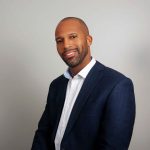 John Casmon is a real estate entrepreneur, who has partnered with busy professionals to invest in over $100 million worth of apartments. John also consults active multifamily investors to help them start or grow their business. He hosts the Multifamily Insights podcast (formerly Target Market Insights) and is the co-creator of the Midwest Real Estate Networking Summit. Prior to becoming a full-time investor, John worked in corporate America, overseeing marketing campaigns for General Motors, Nike and Coors Light.
John Casmon is a real estate entrepreneur, who has partnered with busy professionals to invest in over $100 million worth of apartments. John also consults active multifamily investors to help them start or grow their business. He hosts the Multifamily Insights podcast (formerly Target Market Insights) and is the co-creator of the Midwest Real Estate Networking Summit. Prior to becoming a full-time investor, John worked in corporate America, overseeing marketing campaigns for General Motors, Nike and Coors Light.
Our sponsor, Tribevest provides the easiest way to form, fund, and manage your Investor Tribe with people you know, like, and trust. Tribevest is the Investor Tribe management platform of choice for Jim Pfeifer and the Left Field Investors’ Community.
Tribevest is a strategic partner and sponsor of Passive Investing from Left Field.

